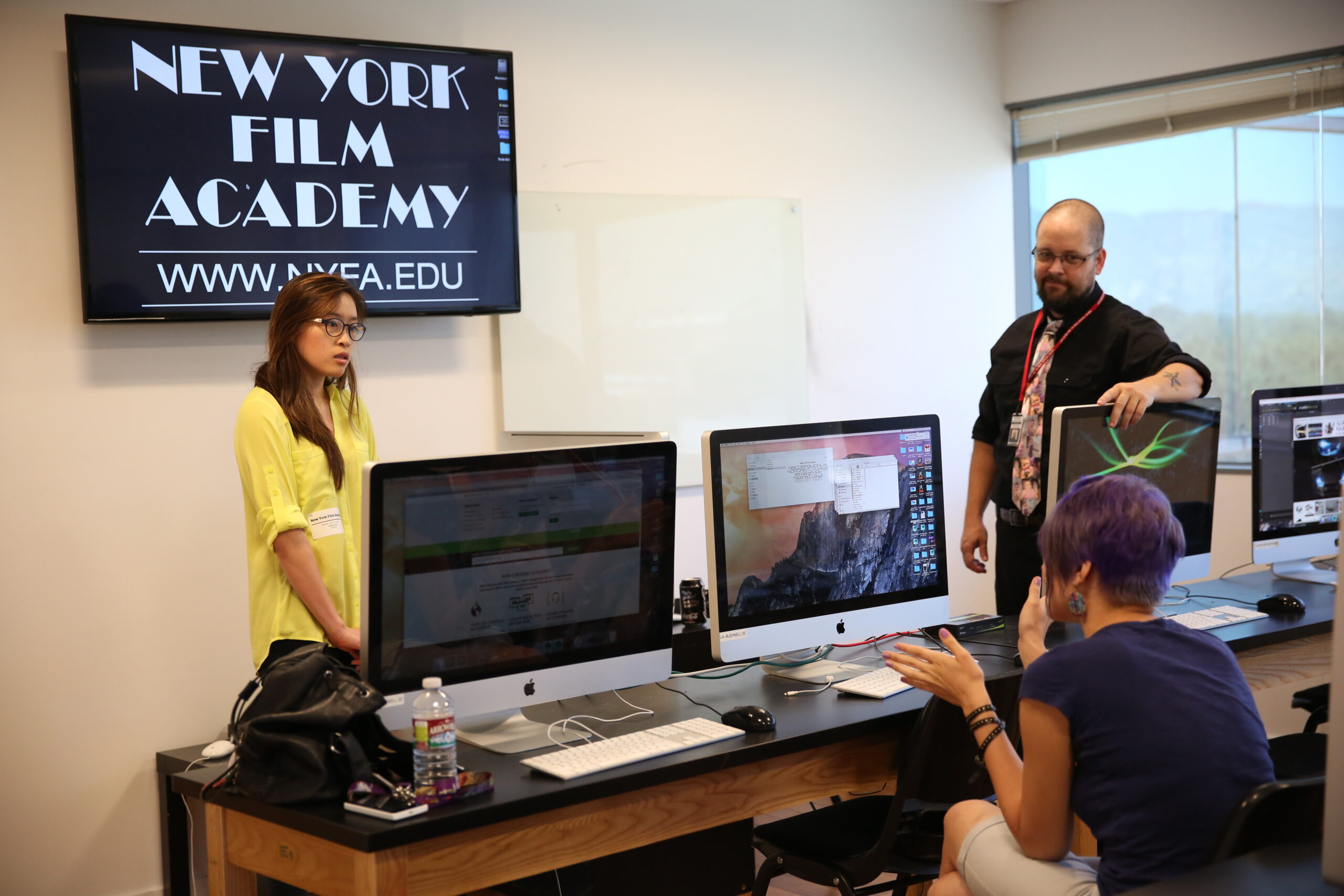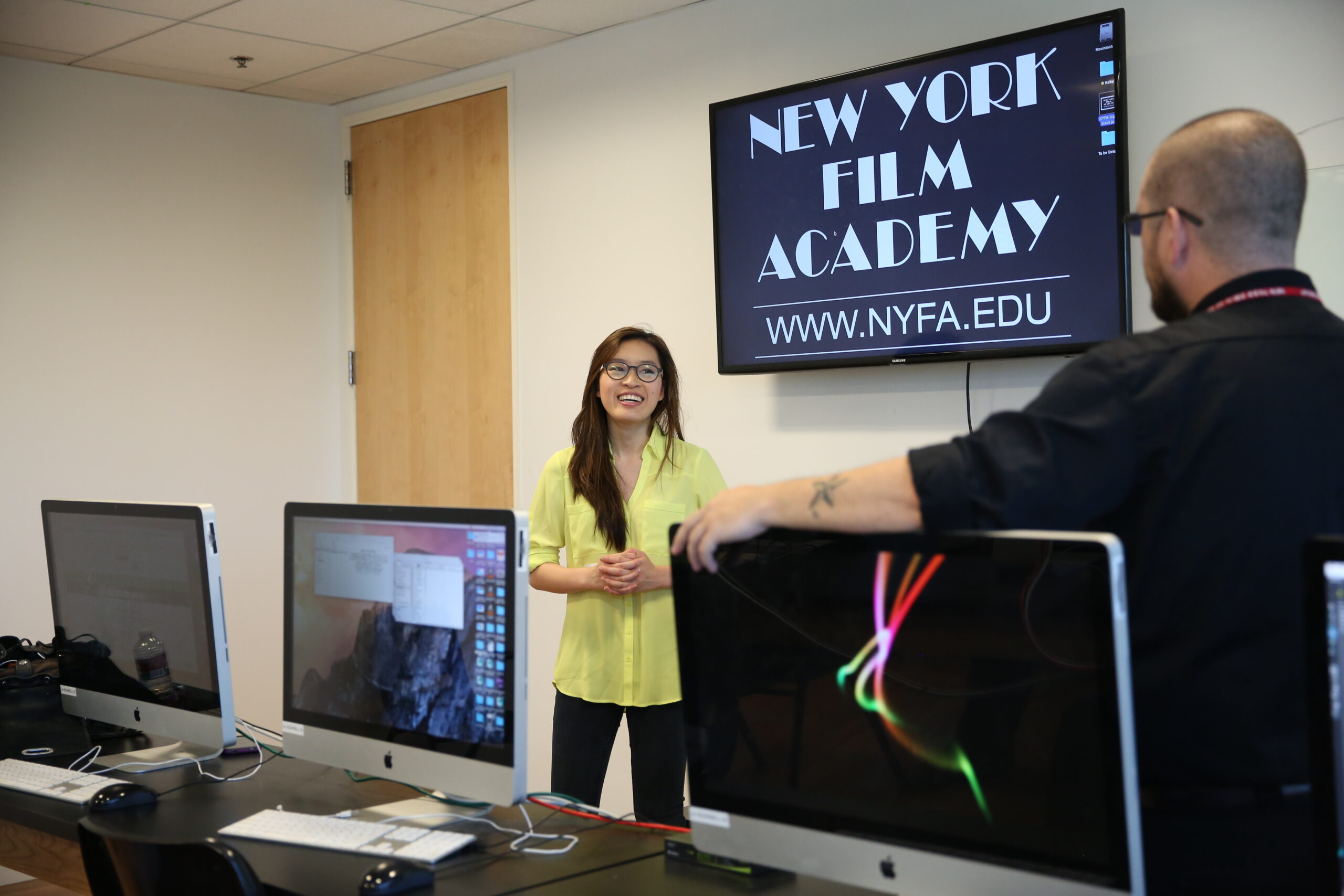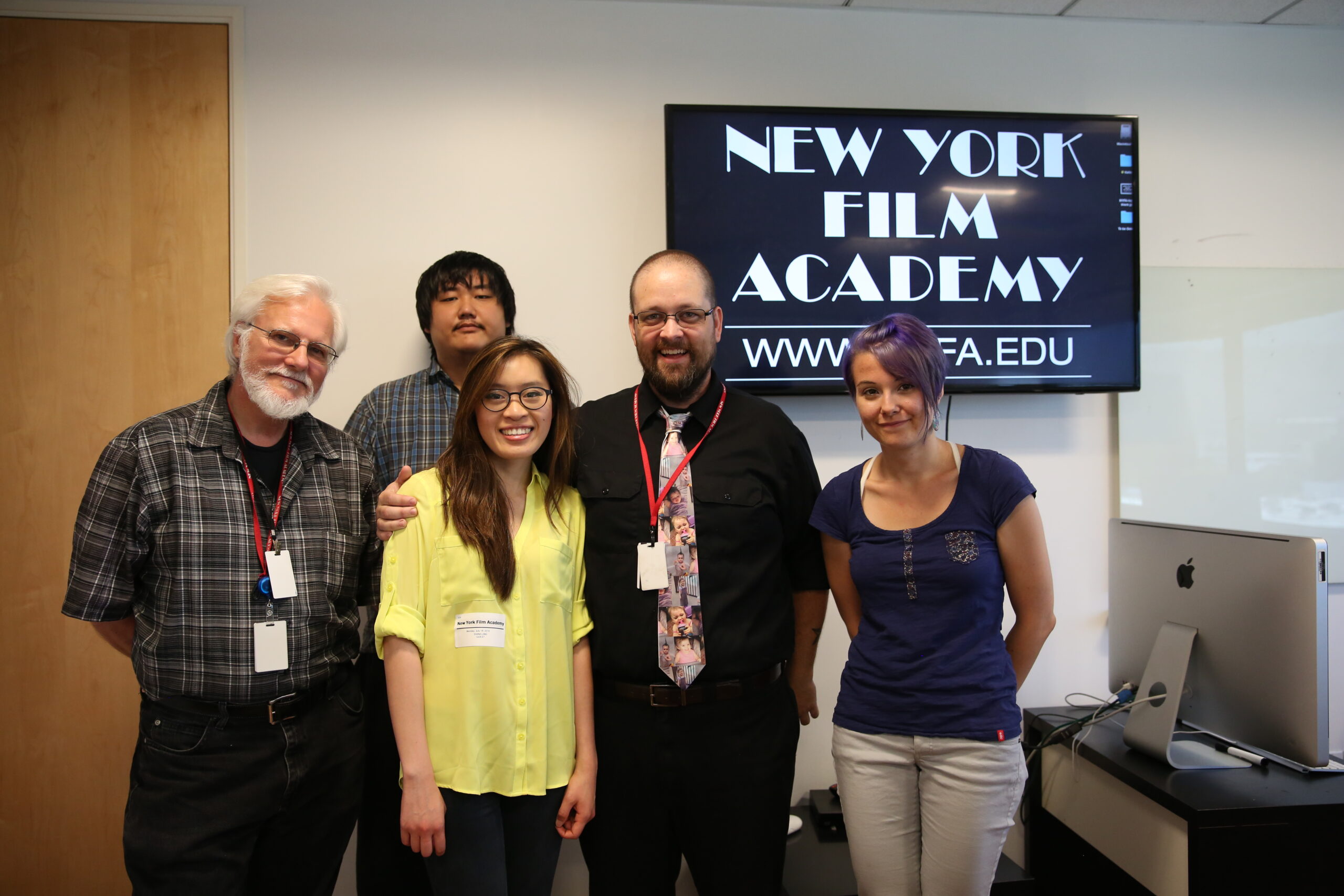This past week New York Film Academy Animation students were given an opportunity to meet with Diana Ling, storyboard revisionist for Hasbro’s Transformers. Ling has worked in advertising, storyboarding commercials and on animation projects including Transformers.

Ling began her career by drawing ten hours a day. She drew over and over until she could sketch at a lighting pace. “Fast is fifteen to twenty clean sketches a day,” said Ling. “So, I decided to go back to school…to specifically learn how to draw, because I still didn’t know what it is I wanted to do. I built up my drawing chops. You sit there for five hours drawing and then you go home and you draw for another ten hours for each class. It’s a lot of mileage.”
“I took this storyboarding class because I thought, ‘Well, I know how to draw.’ That means I can probably apply it to a practical skill. I used the portfolio that I had, the work that I had for that class, and decided to try advertising boards.”
She would get a call asking if she could be at the studio in an hour. She’d meet with the commercial director. They’d talk about the look and story. By the end of the day, Ling produced a series of sketches that made up the entire advertisement.
“In advertising boards you have to be able to draw relatively realistically,” said Ling. “A lot of it’s photobashing if you want it to be. But, for me, I just did everything hand drawn. You also need to know how to draw cars and environments. Your perspective has to be pretty good. And you have to learn to draw really fast too, because the turn around in advertising is one to two days.”

“The agent will call you and say, ‘Are you available today at 1:00 PM to come and work at the studio? They need boards for a pitch.’ I would meet with the director, one on one in a coffee shop or a Starbucks. We’d go over the boards and what he wants. I’d do little sketches. It was a really good experience because it introduced me to a lot of different people. It introduced me to what a director’s life is like. Where you just go from job to job. And it introduced me to the advertising world. In the process of doing that I learned to draw, really, really fast.”
After some time, Ling began to have a crisis. She realized that she wasn’t fulfilled doing promotional work. So, she quit. She took some time to consider what she wanted and decided she wanted to tell stories. This is how she ended up at DreamWorks Animation working on Transformers.
“In advertising you make a lot of money, but if it’s not fulfilling you artistically then you haven’t really succeeded. So I think my advice would be sit down, go to the beach, relax and think about what it is you want to do. I would write it down. It doesn’t have to be really specific, but if you keep thinking about that thing that’s on the tip of your tongue. If you just keep trying to kneed that dough than it’ll come in to fruition and it’ll be beautiful. And you’ll like it. You won’t be doing things that you don’t like to do.”
“When I graduated in 2012, I wasn’t really sure what I wanted to do, but I knew that I really wanted to draw for a living and so I tried finding work as an artist. I realized that it was really difficult. I was kind of just getting these one to two day jobs for about a year or so. It was like one a month. It was very, very little.”

Ling continued, “I realized, like some people, all they want to do is draw and enjoy themselves doing that. But I realized that I kind of wanted to create something for myself. I wanted to create a name. In the past year I had been starting to think, ‘What kind of mark do I want to put on the world?’”
Ling then looked over the students’ reels and sketches. She gave them advice and encouragement in applying themselves in the future:
“A job is really just a job and as an artist you really need to think a little more entrepreneurially because there’s so many great artists in the world. Anyone can pick up a camera nowadays. Anyone can create a film on YouTube. Anyone can draw. There are lots of people who can draw very, very well. I used to be really worried about beating the competition. But now I’m not worried about that anymore. Your career is not really about beating other people. It’s about fulfilling what you want to do in your own life.”“If you want to become a master draftsman than you go do that and then the jobs kind of come. So you’re thinking more like an artist, rather than trying to progress your career. I think it’s more important to focus on your internal growth rather than begging for jobs.”“I believe the road to mediocrity is conformity. Trying to do what everyone else is doing and just trying to fit in to what all the people at Disney are doing. Rather, if you want to be successful you have to think about your own voice and be a non-conformist and trust that your voice and your skills will take you in the direction you want to go. You want to get job that you want. You don’t want to get jobs that you’re not interested in. You want people to be like, ‘Oh, Diana Ling she does that kind of stuff. We want that.’ They recognize your work and they associate your name with your work, because it’s not like anyone else’s.”
New York Film Academy would like to thank Ms. Ling for taking the time to come speak with students. You can find Diana Ling’s work here.